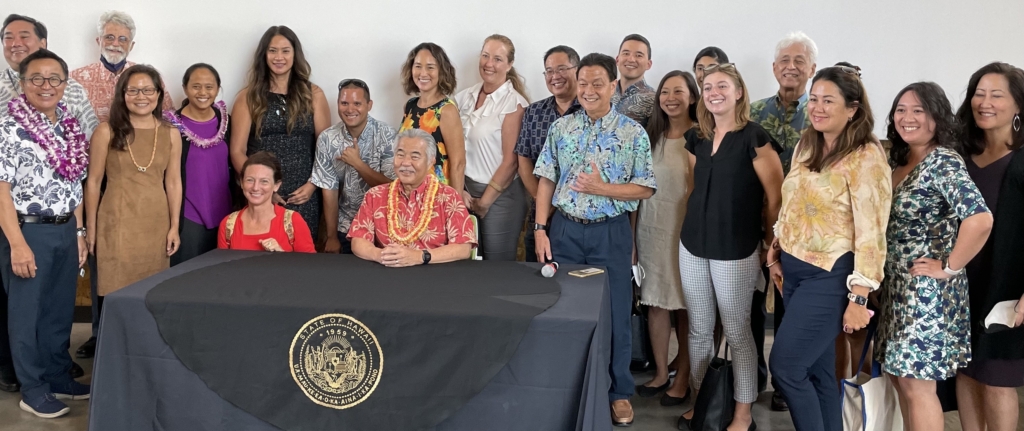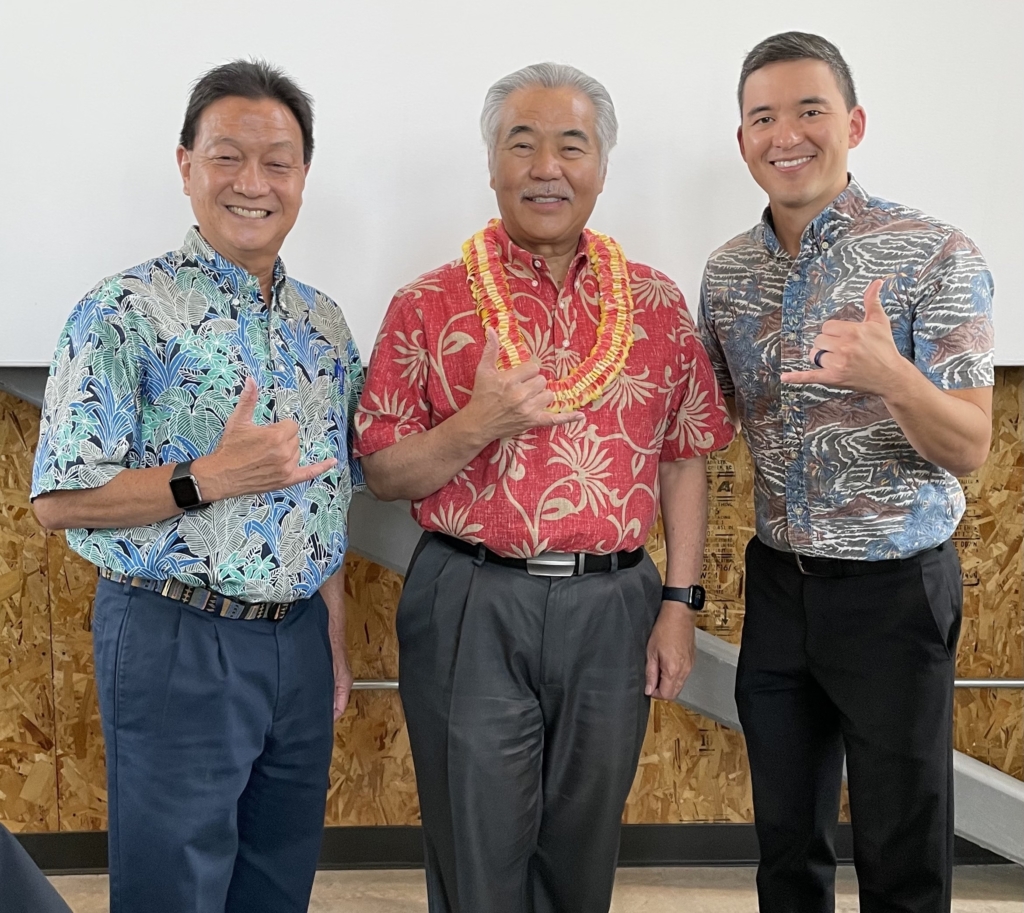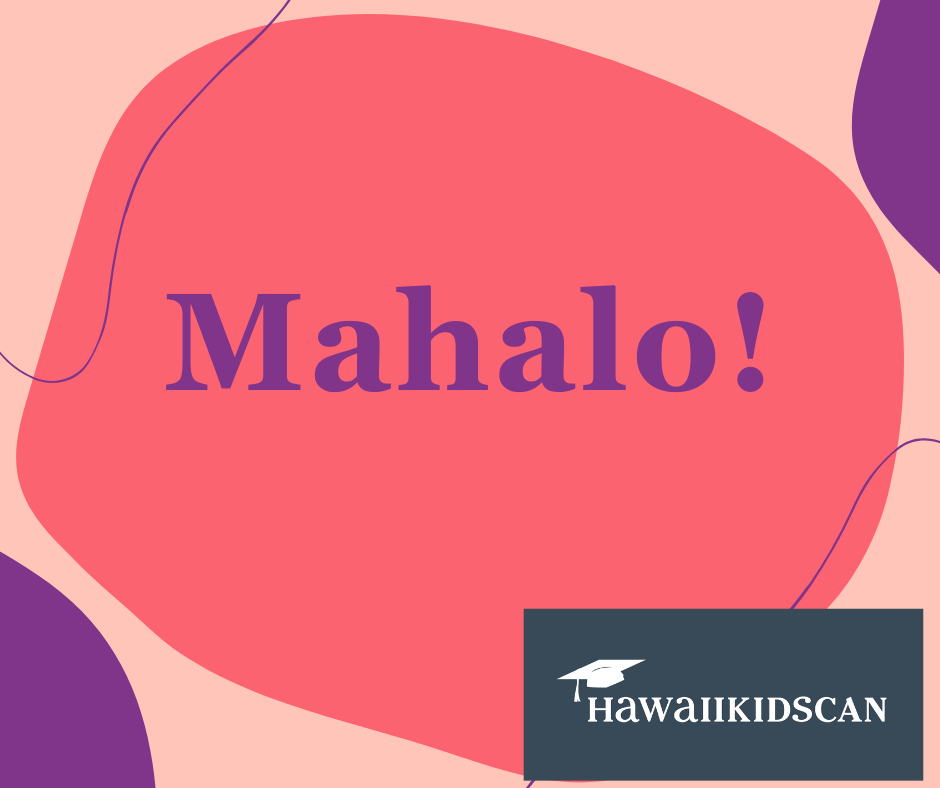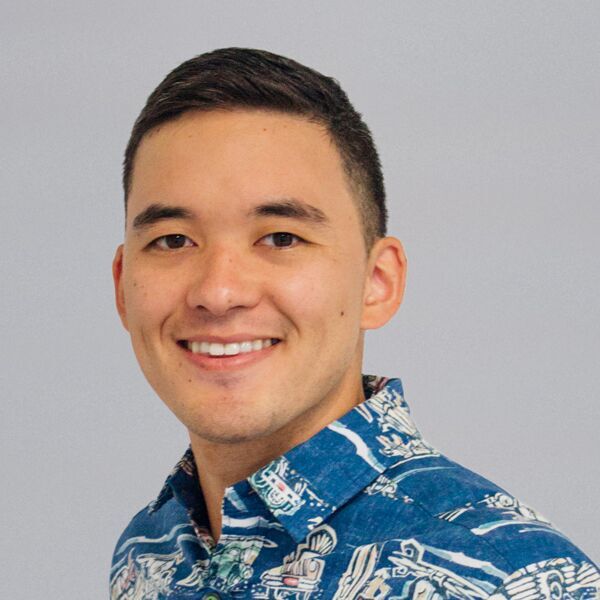Thanks to the incredible partnership and support we’ve had this year, we can officially celebrate that several of our priority bills are now law! Mahalo to Governor Ige for making these policy changes a reality.

It was a privilege to join Governor Ige and our partners from the Hawaii Broadband Hui on June 30 at the Entrepreneurs Sandbox for a bill signing ceremony to recognize this collective work. Read below for more details.

SB2826 is now Act 143: Boosting high-quality career readiness programs with $2.6 million
-
- Act 143 creates the first legislatively-funded incentive program to reward schools for helping kids get ready for careers in growth fields by attaining industry-recognized credentials.
- The legislature appropriated $2.6 million for this program, which is 26 times the budget we had in mind when drafting the bill!
- Act 143 builds on a win from last session – SB516 – by harnessing career readiness data to improve opportunities for students when they graduate.
Package of digital equity bills signed
-
-
SB2076 is now Act 231: This law moves the needle on closing the digital divide, investing in digital equity through $360,000 in the state’s Broadband and Digital Equity Office. We were proud to lead the Policy Subcommittee for the Hawaii Broadband Hui this session in support of this bill and six other bills and resolutions that passed, and we coordinated nearly 20 pieces of joint testimony with more than 125 signatories.
-
SB2214 is now Act 232: Another law that helps to close the digital divide in Hawaii, Act 232 establishes a digital literacy program to be overseen by the Board of Education and implemented by the state librarian to promote digital literacy through programmatic activities, including making digital technology accessible to individuals with disabilities.
-
SB2184 is now Act 233: This law advances innovative learning through the Hawaii Department of Education, allocating more than $7 million to launch a new digital learning center that will enable more kids to access quality distance learning and digital literacy programs.
-
SB2479 is now Act 234: The COVID-19 pandemic exposed that many kids and families lack home internet access, especially if they live in public and low-income housing projects that lack broadband infrastructure. This law will start to close that gap by requiring that access to broadband be intentionally designed into all new projects.
-
Progress made
-
-
SB2142: While we’re disappointed this computer science education bill was vetoed, we’ve believed from the start of the year that going through the Board of Education is one of the best routes to improving equity and access in CS. We look forward to working with our partners to get this policy change across the finish line through a new path, and we think it should be fairly simple to address the technical issues that came up regarding changes to the University of Hawaii’s admissions requirements.
-
SB2824: This bill was always potentially controversial, as it sought to institute some structure to the BOE member selection process. Since BOE members are appointed and not elected, there are not many opportunities for the community to proactively weigh in on the types of folks on the board. We think the conversation we generated this session around the diversity and holistic representation of BOE members was productive and can serve as a guide for future appointments. We also wanted to note that the composition of the current BOE – with new members and board chair this year – is closer to the mixture of background and perspectives imagined by the bill.
-

We’ve found from experience that advocacy is a long road that is rarely the most direct route between Point A and Point B. Wins and setbacks alike provide great opportunities to learn and reflect, and we know that progress requires sustained work and commitment.
We’ve enjoyed advocating and partnering with you for the past five years, and we’re looking forward to continuing this campaign with you for many years to come.
Mahalo!
PS – help us keep getting policy wins in 2022 and beyond by making a financial contribution to our work.
